Betrothal
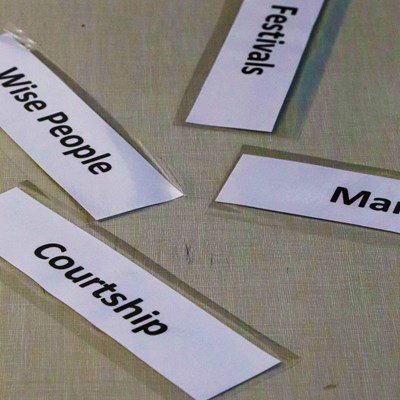
Morocco
The first phase of the Moroccan marriage begins with the betrothal, or ‘khetba’, whereby the future husband’s parents meet with those of the bride and ask for the hand of their daughter on behalf of their son. Once the bride’s parents give their agreement, the two families begin to prepare the marriage ceremony.
Cameroon
Betrothal in Cameroon is usually a serious affair, with much advance thought going into the prospect of marriage between two people. Once a decision has been made to offer marriage, the prospective son-in-law must meet officially with the girl’s family in a ceremony known ‘Toquer a la porte,’ which roughly translates as ‘he’s knocking at the door’. The future husband is accompanied by his family and friends, who bring gifts, which may include rice, Corvina bars (fish fillets), matches, juice and beer. The families and friends eat together whilst they discuss the marriage proposal, and the bride’s father presents the suitor with ‘The Sorrowful’, a list of things required for the dowry. If the dowry is agreed, the suitor is given permission to ask permission to marry the girl. At this point, the head of her family addresses the girl directly, saying, saying something like, “This man has come here to ask you to marry him. If you agree to take him as your husband, take a few bottles from those he brought and give them to me. If you do not want to marry him, you must return the bottles to him, so that he may leave with his belongings.” The girl then makes her decision whether to marry the suitor.
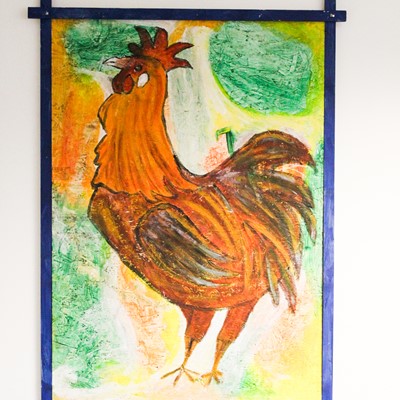
Guy Ngansi Deyap, Bamiléké, Cameroon, on engagement in his family unit:
“It depends on the culture…my family, my father he don’t ask for much. He loved to see people getting married. Even use his own money to pay for your bride price. Because he want people to get married. In my family, personally we don’t ask for much. Because my father said to me, you have to take the bride price because traditionally that is a symbol. But, don’t exaggerate. You have to…my father would never…he would take maybe fifty pounds, buy something, so that’s the way we was.”
Guy Ngansi Deyap, Bamiléké, Cameroon, on his bride price sent to him in Glasgow:
I got married to my wife in 2016. They sent me a list. That were two thousand pound for the list.”
Boris Zamba, Cameroon, on engagements:
“A man comes to the family and presents himself officially before, so that they know that he is official, dependant to get woman and, ah, and that ceremony. The woman’s family will make some notes of requirements, what is needed for him to marry their daughter, and then they will hand him that piece of paper.”
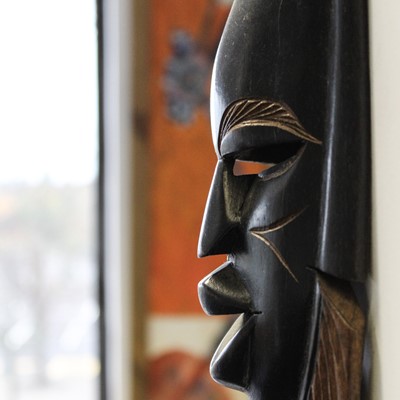
Courtship amongst the Mende
A Mende girl may be betrothed by her parents to a suitor when she is still a child. She does have the right to change her mind when she becomes an adult. If she marries without her consent, then the husband’s family must pay a bride price. If the bride price is not paid, then any children resulting from the union are considered the property of the wife’s family.
Abdualle, Mende, Freetown, Sierra Leone:
“Well, engagement in Sierra Leone, when you will get to the woman in Sierra Leone, traditional way the month you have to buy maybe the goat or a cow, then you have to get money or kola, everything has to wrap in a white cloth to show that you respect this family that you are going to take their daughter away from them. So, the ceremony in Sierra Leone is very, is very, very deep culture and that’s another thing I like to talk about, those are the things that our great ancestors taught that you have to respect women when you’re going to have them. So that is why when you’re going to have a woman in Sierra Leone, you have to get prepared with the kola, the cow, goat or sheep, for you to take that woman away.”
Abdualle, Mende, Freetown, Sierra Leone, when asked if any traditional Mende ceremonies are still carried out in Glasgow:
“Not really. It only happens when it’s like national celebration. For we here now, so we think about that, so we try to celebrate it here as well. And in London where we have a big Sierra Leone community, we celebrate different types of occasion as well.”
Mourad Bouhadjar, Algeria:
“Engagement, so you need to, to see Imam in the Mosque or call the Shia in Algeria in North Africa, call the Shia. When you make an arrangement, engagement, so we need to see the witnesses to the Shia Imam, is that’s what I’m going to ask for the hand of that woman for marry.”
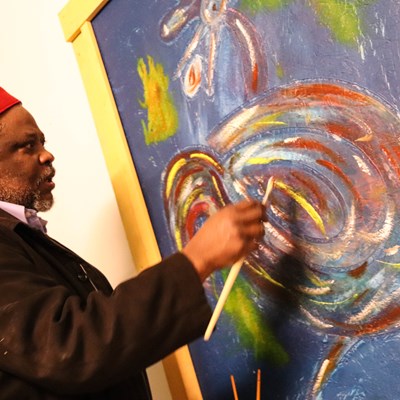
Sissala courtship
Sissala dowries are paid in cattle and tend to be fully paid several years into the marriage as an insurance that the wife is capable of bearing children. Neighbours, friends and elders are consulted on the suitability of a match before it may go ahead. It is forbidden for people from the same village to marry.
Chief Suleman Chebe, Sissala, Ghana:
“In my tribe before the wedding you have to send some kola nuts to the lady’s side of the family and so the kind of kola you send determines the character of the man and if, you know, if the kola is accepted it means that you are ready, so, irrespective of your engagement plans and all those things, if the kola nut is not well received by your in-laws, means your wedding plans could be severely upset.”
Ofomu Clark, Edo State, Nigeria, on her engagement back home:
“I met him in Uni as well, back home. We did an introduction in my family home. He came with his family and, you know, and made the request known to my parents. That he was interested in me.”
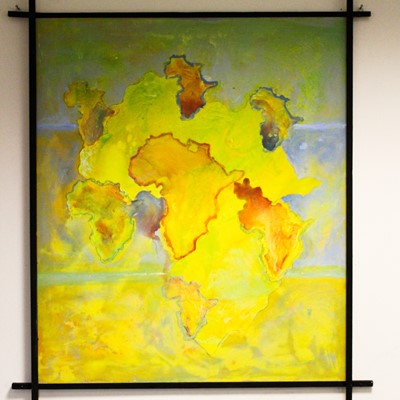
Engagement amongst the Baganda
Traditionally the Baganda parents made the decision over who their children would marry. In the past, an aunt would have first been sent to meet the bride’s parents but now it can be other members of the family. A bride price is required before the marriage is agreed. This used to be in the form of a chicken or a goat, or some locally produced bark cloth, but can now amount to thousands of pounds, depending on the wealth of the family.
Nassar Lule, Baganda, Uganda:
“Yes, they have to ask, and the parent have to go to the other parent to talk to them, but sometime the other parent, they don’t like you or don’t support that family, or maybe they have their reasons, so sometimes there is trouble over there. Yeah, sometimes you find there is trouble over there, you see, because the parent they have to make a decision. It is so funny to make a decision for people who love themselves, and their parent they have to make their own decision.”
Nassar Lule, Baganda, Uganda, on engagement amongst those who have since moved to other places, such as Glasgow:
“There are really few people who make their own decision who to marry and those are usually the people who are educated, sent to Kampala or somewhere, they can make their own choice.”
Iko Prince Meko, Ohafia, Nigeria, on courtship:
“If a man find a woman, or if either the parents find the wife for him and show him that, oh, an Ohafia woman or girl for, that very good and they will invite the man to come and see the girl. After that and they accept then they will continue. Or if a man find a wife he will go and tell his parents, especially his dad, that I have found somebody that I wish to marry, then the father will say “who is the person?”, and the boy will brief to his father the person and the father will say “okay, you have to give us some time for us to go and check the family.””
Gloria Oju Onyekwere, Kaduna State, Nigeria:
“The guy comes and makes his intentions known to your parents and then they will call you out. I remember my dad calling me out saying, “this man over here, do you know him?”, and then you identify the person by saying you know him and you are in support of what he’s asking for and then, after then, they’ll fix an engagement party, bring the two, both family, and each day they come can take up to three to four hours.”
Nelson Sule, Benin City, Nigeria, on courtship in Benin City:
“Yes, there is, but the time I grew up in Benin City, umh…we’ve had loads of influence from the European cultures. So, most of us, you don’t really bother about the traditional cultures. But what I know is…during the time of courtship with my wife, I never step foot into the house, you still keep that respect, you meet your partner somewhere in town. Obviously, you are not allowed to come into the house until you’ve made the intentions known proper. I remember when I was ready, I had to first go with my friend. I picked two of my friends and we made an appointment and, ehm, then I went to see the dad and asked to come in to start the courtship with my wife and, I was told, ehm, I can’t do that on my own. I was born into a family so I need to come with my family, obviously, and then we had to go back, I had to go back with my parents, Mum and Dad and extended family. You tell them the day you’re coming and a big feast is held as well and they welcome you, and if all goes well then you are allowed to start coming to the house, ehm, to visit whenever you like. Then during the engagement ceremony, that’s when we fix the date to get married.”
Ali Abubakar, Zanzibar; left in the early 1960s and converted to Christianity from Islam:
“Courtship? It didn’t. Male and female were kept apart… I don’t think that’s the case now, but I can’t tell for certain.”
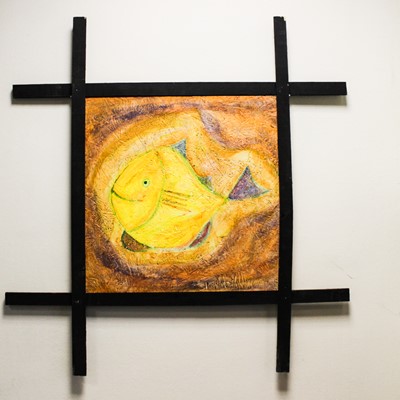
Engagement amongst the Nuer, South Sudan
As pastoralists, cattle are a major part of the world view of the Nuer. They are given as a ‘bride-price’ and may be taken back if the husband passes away. A premium is put on tall and good -looking women who will command more cattle as a result of these qualities.
Simon Koang, Nuer, South Sudan. Simon is one of only a couple of people from South Sudan in Glasgow:
“The marriage. In our traditional there is two different ways to get marriage. Or, you have a girlfriend, you love each other, you get married. Or, you decide to marriage. You have girlfriend. You don’t love her to be your wife… Your family, they can bring you a girl. They know the background of the family. The background of the girl. They will tell you, “You Simon, going to marry this girl. Going to marry that one.” From there they will make…send somebody, information to the father. And the father will go, “Ok, go and meet the girl.” You call your friends and the girl will call her friends. You meet togethers and talks. If you agree, you can marriage. If you disagree…the friends of the girl they say, “No, this guy is ugly, he’s no good. Yes, we don’t want him.” They will say “No, we don’t want you and that is…”. If the girl, if the girl like you, accept you, it’s ok. But, you, you don’t have choice to say “No”, because you are the one that’s been sent by your father. And you come and the girl is the one who have the choice. To look at you, accept you, says “Ok”…she will say, “Ok, you go to my father.” From there, you go to her father and make an exchange, how many cow they wants, and you pay the cow.”
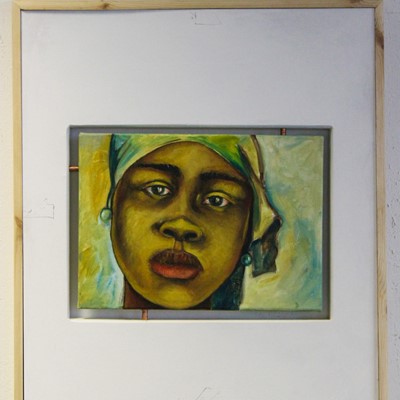
Courtship amongst the Mandinka of Gambia
The traditional Mandinka marriage was arranged by the parents and not by the prospective bride and groom, although the rules on this have, in some cases, relaxed in modern times. Male members of the groom’s family take kola nuts (a very common element in ceremonies in West Africa) as a gift to the woman’s parents. They express the man’s interest, whilst they are there, and if the bride’s family agree, then family members are informed and the wedding arrangements can go ahead.
Sarjo Koita, Mandinka, Gambia, on courtship:
“Yes, that one is another very interesting area. What we’ve said in our land. Couples can see each other, and they want to get married. But they have to get a permission from their parents. To accept it or not. So sometime, you can see, a woman will want a man. A man will want a woman. And they decide they are everything. But, the parents of one side will not agree. Even though they want it…and they cannot go against it.”
Sarjo Koita, Mandinka, Gambia, on Courtship in Glasgow:
“Even in Scotland here…when couples see each other and they want to get married and both of them are Gambian. they still need to send permission back home. And I have met someone. Because at least 99% of the Gambians here have their family back home.”
Serign Sanneh, Mandinka, Gambia, on courtship:
“When someone is looking for a wife you send your family members, you speak to your mum and dad and say “I’ve seen a wife I want to marry”, and they’ll buy kola nut and go to that family and say, “Our son wants to marry your daughter” and they will wait to see if they agree or not.”
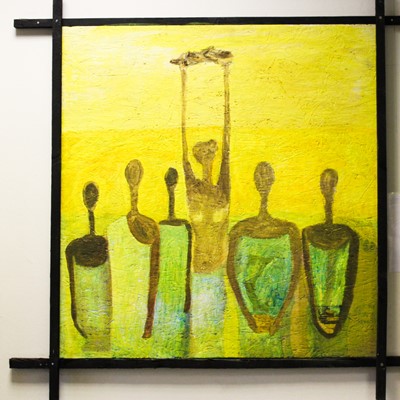
The Akan ‘koko ko’, or ‘knocking ceremony’
Amongst the Akan ‘knocking ceremony’, the man goes to the family of women he wants to marry and knocks the door. He brings schnapps and other gifts, such as kola nuts and money. If the family agree to the marriage, a bride-price is then fixed. In recent years, this sometimes occurs on the same day as the wedding.
Lydie Bere Flere Dossa, Akan, Ivory Coast, on courtship amongst the Akan:
“Ok, over there, when you start dating…most family would like you to bring the man [home]. For the man to know you, and for them as well, to make appointment with the man family. For mum or dad to go there with you. For the family to know each other. In case anything happen. You know where he came from… Now, in gradual time, when you do this one. When you are working or the man is working, and he say, “I want to take her in my house to come and live with me”. Like you are partner. You are not married yet. Before he does it…he need to go and see your family. Especially this father’s side. Because, over there, everything is father’s side who decide. Mum’s side have nothing to do. Because, you still go on this way. It’s father’s side. So, they need to go and see your father, plus his brothers. No sisters, brothers. So, your uncles’ side. You need to bring a drink. They call it knocking at the door. They call it ‘koko ko’. Is to say that “From today, your daughter, Lydie, is living under my roof. If anything happen I am responsible for her.””
Lydie Bere on courtship in Glasgow:
“Even for the koko ko, you send money. Because three, maybe four months ago…I been to Elizabeth and John. The John is a retired policeman. He’s from Scotland, he’s a retired policeman. He marry one of our friends from Ivory Coast. She’s fifty-two, he’s sixty-one. So, they bring money to do the koko ko with the family first. When he was living with her.”
Yunis Odum, Ghana, on courtship in her village:
“How, it’s almost a no-no…especially if you’re in the church. It’s like, no, coz they feel like there’s more sin, in quote, in that. So, they either would prefer you to just wait, to be set up by either a parent or an aunty. Someone older. Or for the person to come and just marry them straight away. Instead of going through the process of just getting to know them a bit.”
Yunis Odum, on courtship in Glasgow:
“I think it’s still happening. Eh, some might…a lot of people wouldn’t. I personally wouldn’t. Even, I, myself…I’ve been set up several different times…it doesn’t really work out. I don’t think it is better to get to know the person yourself…instead of just being forced onto one person and being forced to generate feelings or affections for that person. I don’t think that’s the most natural way of it happening.”
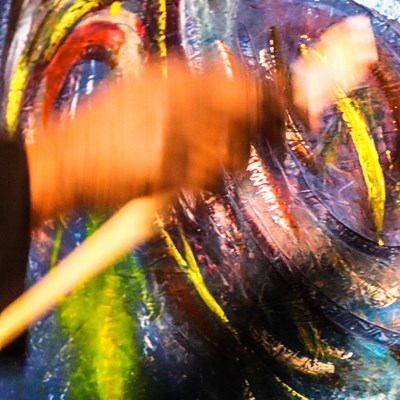
Esan courtship, Nigeria
In Esan culture, both sons and daughters are highly valued. If a daughter is maltreated by her husband, then the family wants to be able to pay the dowry back in order to save her from the situation. This is why dowries are set very low traditionally. In modern times a large dowry may be asked for but the majority of it will be given back to pay for the newlyweds to set up their life together
Chief Josephine Oboh-Macleod, Esan, Nigeria, on engagement in Esan lands:
“If a suitor sees a beautiful girl that he likes, generally he’ll go try to make investigation, call an uncle of his, or investigate where that girl is from, or what she is, sometimes a lot of them - they don’t have a relationship or they don’t want to have any sexual relationship with the girl, they want her to come as she is or to come like that, then they’ll go there and normally what the family would do is ask “Which of them you know?”, then they point or describe her for the family to be very sure the one you’re really talking about. Then they say “Okay”, and the families will say ask her first…most families. There’s no family I know of that would just say “Oh, let’s go ahead and do that - blah blah, blah blah”, because in my culture, I don’t know about some of the other people, in my culture the reason why we make dowries very, very cheap, the exact amount they pay for dowries extremely cheap is because they felt that in those days a lot of their girls were married, the man comes with very good intentions, takes her away to another kingdom and then this girl is maltreated but they cannot pay back that dowry that had been paid. So, us, in Esan land, our dowries are normally nominal.”
Mariarose Ngosi, Lilongwe, Malawi, on courtship in Malawi:
“Every culture has their own system. So ,for example, if I want to get married, I wouldn’t go to my mum or my dad, I would go to my uncle, yeah. I would go to my auntie, who is my uncle’s wife, and tell her “I want to get married” and stuff, then she would tell my uncle, then between the two of them would talk and take the news to my parents. And so once they take the news to my parents, they ask if I’m still going and want to continue with it, then it will be my uncle’s duty to make all the arrangements, all the necessary arrangements, all the rules and requirements to do for me to get married. So my mum and dad will be looking up to my uncle to make sure everything is done, that’s including with me, yes… Yes, they do, they do bring gifts. Mainly, traditionally, it depends with the area. Ah, in my culture, the northern region…so, you bring gifts mainly for the mum, for giving…if it’s the child, the girl…so, they will bring something to give to the mum. It’s like thanking the mum for giving birth to the child. Like, eh, bring her up. Like the way she is…if she is very good. If they like her, like they bring the mum’s gift. To thank her… Then, on that point, they also agree the dowry, whatever they want. If it’s money or whatever. Nowadays, I think they only use money.”
Mariarose Ngosi, on courtship in Scotland:
“In Scotland, in here, it’s different. But, eh, for example, the ones who are marrying, they are Malawians. Eh, they would consult someone. I think from the one…other Malawians. So, but it’s different, but, as long…while those things are happening here…If those two have parents in Malawi. In Malawi they also meet. So, everything else can happen in Malawi while here they are continuing with the marriage.”
Next page: Weddings and Marriage